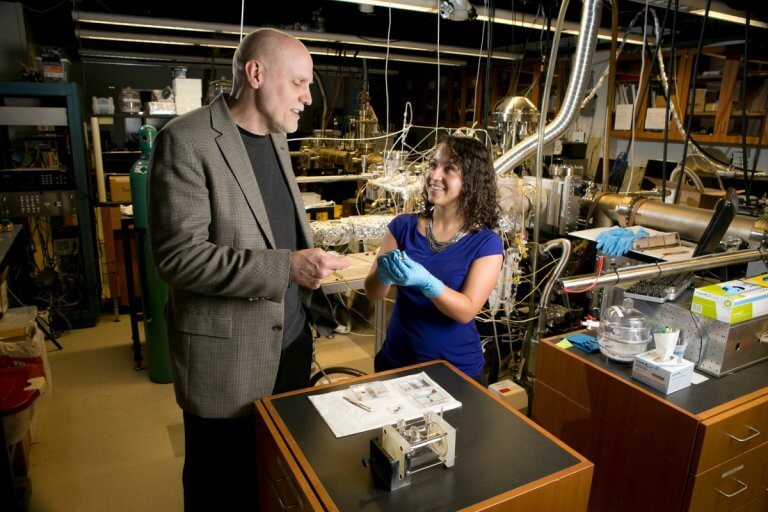
‘Sustainability’ is more than just a buzzword. It’s a broad and crucial concept that incorporates different elements from a range of fields, seeking to protect our environment, as well as human and ecological health.
Engineering is an important field for sustainability and environmental awareness. Those who work in this sector typically design or operate systems that use energy and resources in a sustainable manner, contributing to the sustainability of our environment and the human race as a whole.
Engineers are increasingly expected to play leadership roles when it comes to sustainable development, working to solve global challenges such as the depletion of resources, pollution, ecosystem damage, and the effects of rapid population growth.
Today, considering the numerous ecological problems impacting our world, engineers are required to contribute more and more towards building and maintaining a sustainable environment.
The role engineers play in sustainability is vital; they are the providers of options and solutions that minimise environmental damage.
Those who already hold a bachelor’s degree in engineering but want to become change-makers and positively impact sustainable practices, as well as deepen (and consequently, apply) their knowledge in environmental science, should consider taking up a Master’s degree.
Many programmes allow graduate students to gain practical experience and work with scientists so they can begin their future in sustainability as soon as possible.
Research shows that engineers who hold master degrees often earn higher salaries and have greater career options, but they also get the chance to open up their world to more opportunities and boost their knowledge in their field of choice.
There are several areas of sustainability engineers can get involved in; from environmental engineering, to engineering management, to energy-efficient materials.
During your time on your graduate programme, you’ll narrow your focus and alongside other engineers and scientists on interdisciplinary projects that will spur your interest and help you find your niche.
Want to make a difference in the world and create a more sustainable future as an engineer? Enrol in a graduate programme that will allow you to work across boundaries and gain both knowledge and experience in your field.
Here are four schools where you can gain an engineering master’s in sustainability.
PRATT SCHOOL OF ENGINEERING, DUKE UNIVERSITY – USA
Ranked among the Top 10 schools in the US for environmental engineering, Duke University offers a wide range of graduate study options in sustainability-related fields including environmental health, risk engineering, and energy materials.
Students gain from the school’s strong institutional commitment to environmental sustainability and its highly collaborative environment. Engineering students and faculty work closely with experts from Duke’s Nicholas School of the Environment, Energy Initiative, Rhodes Information Initiative (focused on big-data analytics) and School of Medicine.
Students in Duke’s top-ranked Environmental Engineering Master’s Programmes can study environmental health engineering, water cycles and resources, and geomechanics and geophysics for energy and the environment.

Duke University
Master’s candidates in Mechanical Engineering & Materials Science can learn to develop sustainable energy technologies and materials.
In each discipline, Duke’s flexible master’s tracks give students the choice of adding intensive research projects or core business courses and internships to meet their goals, whether it’s pursuing sustainability in academia, nonprofits, or the business world.
For those with a deep interest in becoming tech leaders, Duke’s Master of Engineering Management programme combines extensive leadership development with focused tracks in environmental engineering, energy and the environment, and more.
Among Duke’s newest sustainability programmes is the Master of Engineering (MEng) in Risk Engineering, in which students learn a systems approach, statistical decision theory to assess the potential for extreme events, as well as the costs and benefits of their consequences, using big data and models to assess risk and guide decisions. Upon graduation, they will be prepared to work in diverse fields, including risk assessment, insurance, financial engineering, and infrastructure analysis.
BERKELEY ENGINEERING, UC BERKELEY – USA
The overall engineering graduate programme at Berkeley is ranked third in the country by US News & World Report, renowned for offering graduate students a rigorous, interdisciplinary and globally-aware experience.
State-of-the-art classrooms, facilities, labs and studios complement learning as they gain research and teaching experience under a faculty renowned for innovation and discovery in engineering.
Berkeley’s Master of Engineering, offered by the Coleman Fung Institute for Engineering Leadership, integrates engineering coursework with classes in leadership and core management concepts. Students approach actual industry challenges through case studies and a capstone project.

UC Berkeley
There’s also the Engineering and Business for Sustainability (EBS) Certificate, which trains UC Berkeley graduate students to understand the complexity and urgency of their role in engineering, business and environmental management.
It also teaches them how to work across different boundaries to achieve sustainable solutions to urgent societal problems.
The programme consistently produces influential problem solvers whose work has a lasting impact on the global environment.
COCKRELL SCHOOL OF ENGINEERING, UNIVERSITY OF TEXAS AT AUSTIN – USA
Another renowned engineering school, the Cockrell School of Engineering at the University of Texas at Austin is a top-ranked center of engineering education and research.
The school is committed to driving economic progress and solving society’s most pressing problems, adopting a multidisciplinary learning approach.
Faculty members encourage students to think creatively and work collaboratively to advance industries and improve lives around the world.

Research done at this school is world-renowned for its extraordinary breadth and quality expertise developed from its collaborative spirit.
Students learn from researchers who are developing technologies and solutions in several cross-disciplinary Research Impact Areas, including Energy and Environment, Artificial Intelligence and Information Engineering, Autonomy and Robotics, Bioengineering and Health, and more.
FACULTY OF ENGINEERING, MCGILL UNIVERSITY – CANADA
At McGill University in Montréal, Canada, graduate engineering students in Engineering reap the benefits offered at The Trottier Institute for Sustainability in Engineering and Design (TISED).
Operating within the faculty to promote green ideas through education, outreach and research, their primary aim is to provide a greater understanding of sustainability issues in society.
They provide an interdisciplinary platform to connect students with researchers, innovators and inventors in all disciplines, leading discussions in an annual symposium and publishing whitepapers on sustainability in multiple areas, such as increased efficiency in energy and manufacturing.
Integrating an environmentally-conscious approach in all fields, McGill mentors future engineers to strive for a more sustainable planet.
The Faculty of Engineering offers graduate programs in the following disciplines: Architecture, Bioengineering, Chemical Engineering, Civil Engineering & Applied Mechanics, Electrical & Computer Engineering, Mechanical Engineering, Mining & Materials Engineering, and Urban Planning.
*Some of the institutions featured in this article are commercial partners of Study International
Liked this? Then you’ll love…
The importance of entrepreneurship in the engineering field
Engineering at Duke – Research and education that builds a better world







